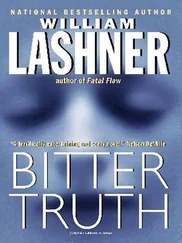“I’ll go and see-”
“He came on his bicycle, Bess, and the wind is fearsome,” Lydia said. “Take Mama’s motorcar. It will be quicker as well as warmer.”
Margaret sat up straight. “But what if there’s news of Henry? And I can’t get to Hartfield?”
“I can take a bicycle,” I began, but Lydia wouldn’t hear of it.
“If there’s a message from Henry, Bess can come back for you,” she told her sister-in-law.
And so I set out for Hartfield, the silent clerk in the motorcar beside me, his bicycle strapped to the boot. He could tell me no more about the telephone call, but I asked all the same if my mother sounded upset.
“I wasn’t the one who answered,” he said. “I’m sorry.”
When we got to Hartfield, there was a flurry of activity in the normally quiet streets, and I said, “What’s happened?”
The clerk, peering out the windscreen, said, “I don’t know. There was no one in the street when I left. Silent as the tomb, it was.”
It would have taken him well over half an hour to bicycle to Vixen Hill.
Slowing, I said, “Is that Inspector Rother with the torch? There, just across from the inn. Look, he’s going to Bluebell Cottage!”
He disappeared inside the door, closing it after him. The small circle of onlookers was being kept back by a constable, and I recognized Constable Bates. There was someone else just coming up the road, hurrying to speak to Constable Bates, and as he was allowed to proceed, I recognized the rector, Mr. Smyth.
I drove slowly, cautiously, edging past the gawking crowd, and then I heard Constable Bates shout, “You there. Where do you think you’re going?”
I was saved from answering by the inn’s clerk, who leaned out his window and called, “I need to reach The King’s Head. Is that all right?”
“I thought it was one of the Ellises, pushing their way through. Yes, go on.”
I crept slowly past, but just as I drew even with him, there was a shout from the cottage, and Constable Bates turned toward it, not toward me.
“Can you drive? Take this motorcar, turn around, and go to Vixen Hill. Find Captain Ellis and bring him back,” I told the clerk quietly. “I’ll get down here.”
I slipped out into the shadowy darkness beyond range of the torches and was out of sight by the time Constable Bates had crossed to the cottage door to speak to Inspector Rother. Behind me, I could just hear Mrs. Ellis’s motorcar reverse as far as Dr. Tilton’s house, the headlamps dimmed. I walked into The King’s Head and sought out the woman behind Reception’s desk.
She smiled as I approached. “Yes?” And then as she recognized me, she added, “Ah, Sister Crawford. What’s happening out there? I hear people shouting.”
“I don’t know, I think the police must be after someone,” I answered quickly. “The telephone?”
“I’m afraid it’s in use at the moment. It was your mother who telephoned. Mrs. Crawford. She said it was urgent. I hope it isn’t bad news.”
Well out of sight of the police outside, I stood there in Reception, trying to contain my impatience and my worry. My mother wouldn’t have telephoned me unless it was a dire emergency.
Was it Simon, who hadn’t come back as he’d promised in “a day-a day and a half at most”?
Or my father. Had something happened to the Colonel Sahib?
I was trying to think what to say to Inspector Rother if I had to leave for London straightaway, or even Somerset.
I decided then that if it was necessary, I would take the Ellis motorcar and drive to London without telling anyone. The same hotel clerk could carry a note to the family in the morning, when it would be too late to stop me. I’d find someone in London who could ferry the motorcar back to Sussex. One of my flatmates, if anyone was there. Someone. I was willing to pay handsomely, it wouldn’t be impossible.
Finally the artillery officer who had been using the telephone stepped away from it, and as I hurried forward, I heard him say to the woman behind the desk, “I shall need to put through another call to London shortly. Will you keep the line clear?”
My heart plummeted. As far as I knew there was no other telephone in Hartfield.
She saw me hesitate. “This young woman has missed a call from her family. She looks very worried. Would you mind if she used the instrument meanwhile? I’m sure it won’t take very long.”
He turned, on the point of saying no, I could read it in his face. And then he saw that I was a nursing sister, and his expression changed.
“Yes, go ahead, Sister.”
I thanked him and after some difficulty with the lines, I put through the call to Somerset.
The phone rang and rang, my anxiety growing with each ring.
And then my mother’s voice came down the line.
“Bess, dear?”
“I’m here, Mother. Is the Colonel all right? Simon?”
“Yes, my dear, they’ve been delayed. I have a feeling they’re in Scotland. Or else training Scottish troops. Your father murmured something about haggis as he left.”
I was so relieved I couldn’t stop my lower lip from trembling, and it was a moment before I said, “That’s wonderful.”
“Not the haggis, Bess, he abominates it.”
I swallowed a bubble of hysterical laughter.
She went on, “Are you all right? Simon was quite worried about having to abandon you. Richard wasn’t very happy about it either.”
“Yes, I’m very well, Mother. It’s been rather trying, but I hope the police will be satisfied soon.” Was this the reason she’d called? Because she was worried about me?
But then she said, “I had a telephone call earlier this evening. An hour or so ago. Someone trying to reach you. Apparently he was in Dover, in some difficulties with the authorities there, and needed to speak to you urgently. He wouldn’t give me his name, and I rather thought there must be others listening in to his side of the conversation. But he said you would remember the kingfisher. Do you have any idea what on earth he was talking about?”
I drew a blank for all of ten seconds. And then I did laugh. “Did he sound Australian to you?”
“I’m not sure, Bess. His voice was very strained, and he coughed every other breath. In fact, he seemed to have some trouble breathing.”
“How on earth did he find you in Somerset?”
“I’ve no idea. He begged me to reach you, and he said he’d be waiting in Dover for you, and if you could come there straightaway, he would be very grateful. He said it was most urgent, or he’d be clapped in irons and everything would be lost.”
I couldn’t imagine why Sergeant Larimore should be telephoning me from Dover, or even how he got there.
“Was he-do you think he’d been drinking?” I asked, for the Australians had a reputation for putting away large quantities of beer. And he might have taken a dare and tried to come to England.
“I couldn’t tell, not with the coughing. He wouldn’t leave a number. He said you must come as quickly as you could.”
“I’m not supposed to leave here,” I began, and then I had one of those feelings we all get at one time or another, that I ought to go. After all, Dover was closer than London or Somerset. If I was prepared to risk Inspector Rother’s ire by leaving to go to either place, why not risk it and go to Dover? If the Sergeant was a deserter-and somehow I couldn’t picture him abandoning his men-he’d be in a great deal of trouble. I wasn’t sure what I could do, but I would try to help.
“I’ve changed my mind. Mother, if he should telephone you again, tell him I’m on my way.”
“Yes, I’d feel very much better if you did go. But it’s late to be starting out for Dover, my dear, and you must be very careful. Promise?”
Читать дальше












